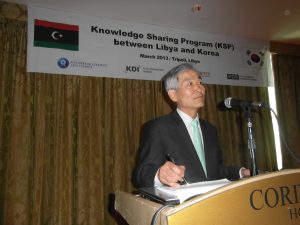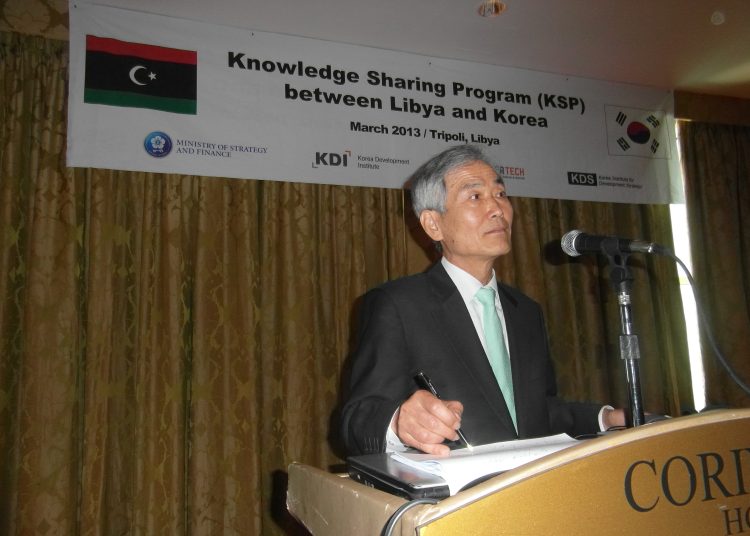By Sami Zaptia.

Tripoli, 16 March 2013:–
As part of the Libyan-Korean cooperation agreement, the 2012 Knowledge Sharing Programme (KSP) with Libya, . . .[restrict]the Korean Institute for Development Strategy organized a workshop in Tripoli on 11 March.
“From a hopeless country to a modern industrial state”, said Professor Chun, President of the Korean Institute for Development Strategy going through Korea’s history of colonialism, division into two states, outside military occupation, a civil war and a military coup, before democracy and development into one of the highest ranking industrial and technological states in the world.
Korea transferred its economy from relying on basic exports in the 50’s to the those of much higher value today. And from a nation with a balance of payments deficit to a balance of payments surplus and a member of the G-20 in 60 years, Chun reported.
This was achieved through various means including setting strategic objectives for state-building and economic development. Without first deciding on a vision and a strategic long-term plan – without the big picture, the short term and medium term plans of the jigsaw puzzle would be meaningless.
The strong enforcement of the rule of law ranked high as strategic objectives, hand-in-hand with meeting the basic everyday human needs including creating jobs.
Strategic support was provided to SMEs and a national drive to foster a technical workforce was launched. The “pre-modern” work ethics and attitude were changed and the education curricula were upgraded.
But Professor Chun warned that historically few countries had a smooth transition out of a fragile state, as in Korea’s civil war and partition.
The full version of this article will be available in the forthcoming April edition of the Libya Herald Business Eye magazine, available in hard copy within Libya and downloadable in a pdf version from our website. [/restrict]










